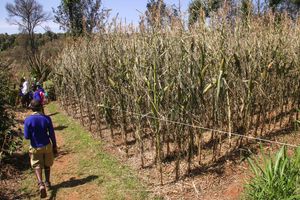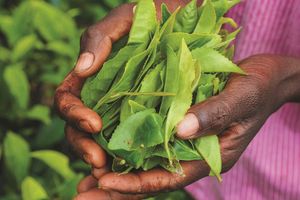
Farmers at the Bura Irrigation Scheme going about their business in this picture taken on March 4t, 2025 in Bura, Tana River County|.
A State-backed crop insurance initiative is flopping as farmers quit paying premiums on frustrations of non-payment of compensation, an audit has revealed.
At least 355,876 (86.4 per cent) of growers quit the initiative between 2021 and 2023, dealing a blow to the government’s goal of de-risking farming and encouraging them to improve agricultural production.
The government developed the insurance programme in 2016 to encourage farmers to invest in their farms and improve agricultural yields.
Under the initiative, the State is required to subsidise crop insurance premiums by 50 per cent, as farmers cover the remaining half. The premiums serve to cover their farms in the event of unforeseen circumstances causing loss.
“This led to an increase in insured farmers, from 900 in 2016 to 411,876 in 2020. However, since 2021, there has been a sharp decline, with only 56,000 farmers covered in 2023 due to the government's failure to compensate farmers who incurred losses, leading to a loss of confidence in the scheme,” Auditor-General Nancy Gathungu says.
Ms Gathungu, in her report on the state department for Agriculture in the year ending June 2024, faults the government’s failure to compensate insured farmers for a loss of trust in the programme, which has now caused a massive flight from the initiative.
The loss of trust by farmers occurred at a time when Kenya experienced one of the worst droughts in 40 years running from 2020 to 2023 and affecting over four million citizens, and el nino rains that wreaked havoc across the country early last year.

A maize farm ravaged by hailstorm in Nyeri. Crops vary greatly in size, type and environmental conditions, hence the need to get insurance services that meet your needs. PHOTO | FILE | NATION MEDIA GROUP
The two events caused damage on thousands of farms as crops were lost to floods and drought, with many Kenyans surviving on humanitarian assistance for months.
While farmers had paid Sh12 million in premiums through the initiative by June last year, the Auditor-General noted that no compensation had been made despite losses.
“Additionally, no evidence was provided that the government had paid the corresponding 50 per cent subsidy to match the farmers' contributions. The achievements and investments made in the initiative seem to have been undermined,” Ms Gathungu says.
In the year ending June 2024, the State Department spent Sh249.26 million in respect to administration of crop insurance but the audit concluded that value for the expenditure could not be seen, since the State has not even enacted a law to guide crop insurance.
The objective of providing a safety net for farmers through compensation has not been met, the audit says.
pmburu@ke.nationmedia.com









